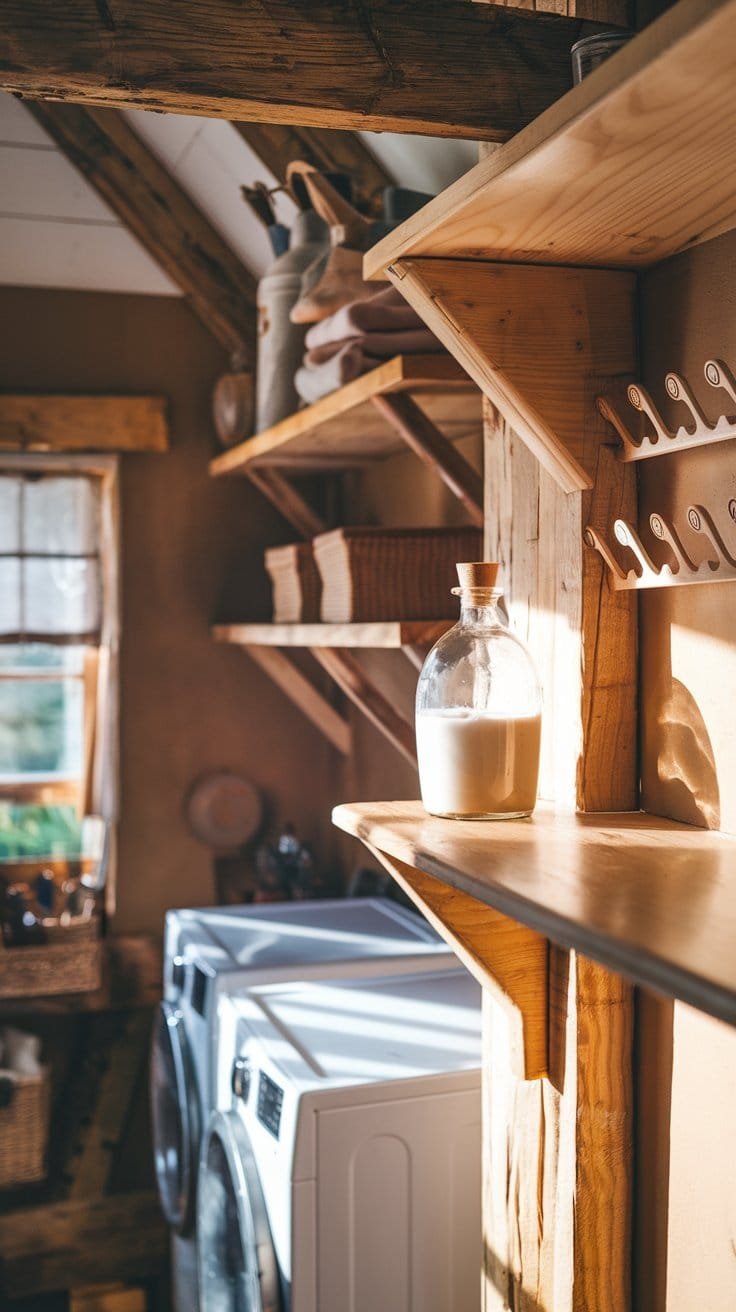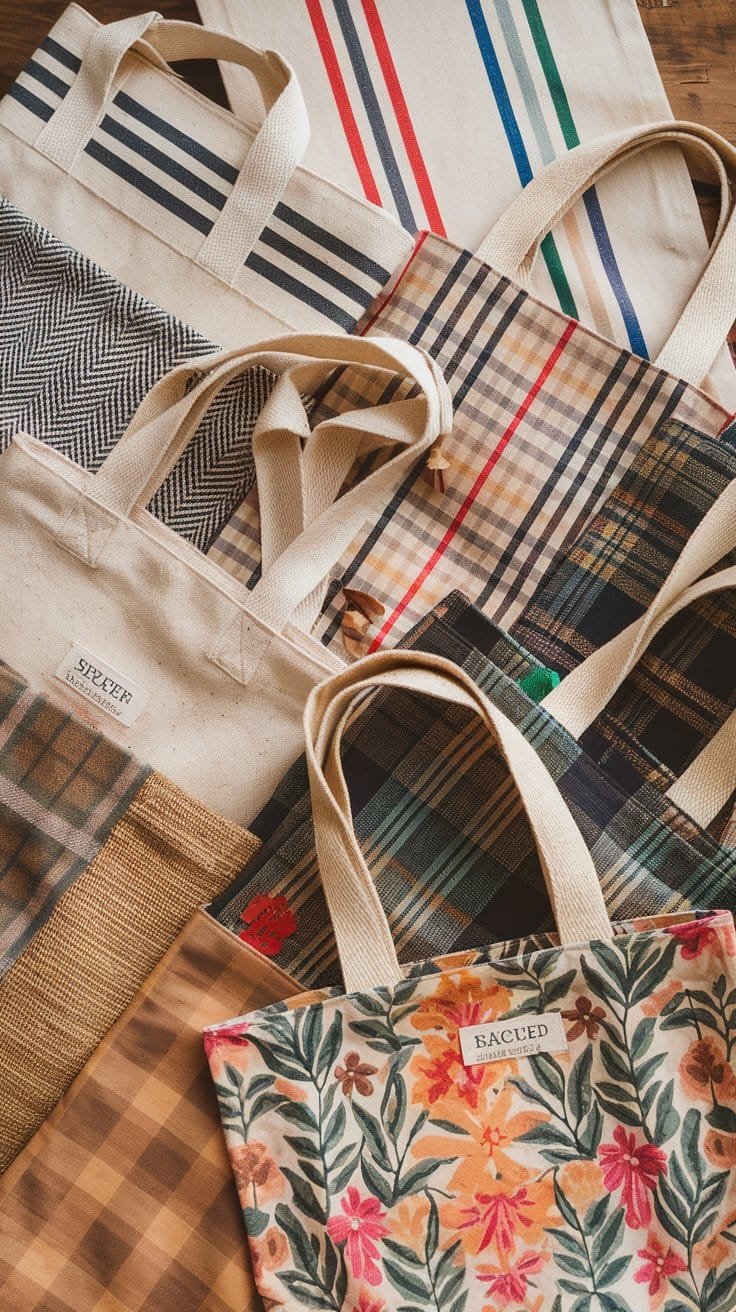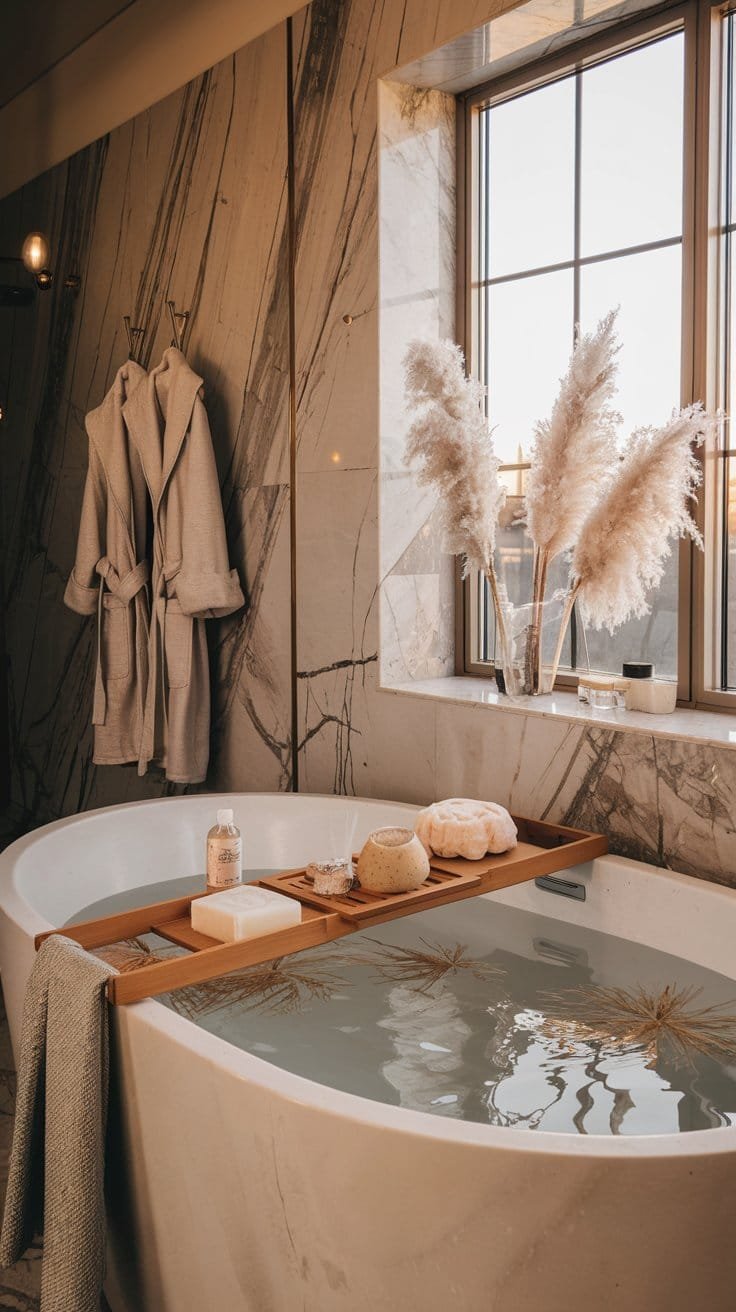Starting an eco-friendly home is easy with small, daily choices. This guide shows you how to swap plastic for sustainable options in every room. From the kitchen to the bathroom, making these changes helps the planet and saves money.
Want to cut down on plastic or live a zero-waste life? This article is your guide to a plastic-free world. We’ll cover everything from reusable water bottles to eco-friendly cleaning supplies. Start changing your home room by room and make a big difference for the planet.
This website contains affiliate links, meaning I may earn a commission if you click on and purchase through these links. Some products have been gifted by brands for testing. As an Amazon Associate, I earn from qualifying purchases. Additionally, parts of the content on this site are created or enhanced by AI technology.

Why Making the Switch to Plastic-Free Living Matters
Plastic pollution is a big problem worldwide. It harms our oceans and contaminates our food and water. Switching to a plastic-free lifestyle is key to a sustainable future.
Environmental Impact of Plastic Usage
Plastic takes years to break down, harming marine life and the food chain. It also leads to more greenhouse gases, worsening climate change. Cutting down on plastic helps protect our planet for the next generations.
Health Benefits of Going Plastic-Free
Many plastics contain harmful chemicals like BPA and phthalates. These can cause health issues, including hormonal problems and cancer. Choosing plastic-free options reduces our exposure to these toxins, improving our health.
Cost Savings in the Long Run
Some plastic-free items might cost more at first. But, they last longer and save money over time. For example, stainless steel bottles and cloth bags reduce the need for frequent replacements. They also help cut down on waste disposal costs.
Adopting a plastic-free lifestyle benefits our planet and future. Small, consistent changes can make a big difference. They encourage others to join the fight against plastic pollution.
“The greatest threat to our planet is the belief that someone else will save it.” – Robert Swan
Kitchen Essentials: Smart Plastic-Free Alternatives
Reducing single-use plastics in the kitchen is a great start. Switching to glass containers helps keep food fresh and healthy. It also cuts down on harmful chemicals from plastics.
For snacks and sandwiches, try reusable silicone bags. They’re tough, leakproof, and cut down on waste. Beeswax wraps are also great for covering bowls and wrapping food.
Choose reusable coffee filters or pods for your coffee. They’re better for the planet than disposable ones. For lunches, stainless steel bento boxes and bamboo cutlery are stylish and green.
Stay hydrated with reusable water bottles and travel coffee mugs. These eco-friendly kitchenware items help reduce plastic waste and support a greener lifestyle.
“One million seabirds and 100,000 marine mammals die each year from plastic pollution.”
Choosing plastic-free options in the kitchen helps our planet. It makes our food healthier and living greener.
Read more on how to Transform Your Pantry.
Bathroom Transformations: Eco-Friendly Swaps
Turning your bathroom into a green space is simple. Just switch to natural toiletries, biodegradable products, and eco-friendly beauty items. This way, you’ll cut down on waste and enjoy the perks of going green.
Sustainable Personal Care Products
Begin by replacing regular shampoos and conditioners with bars. These solid, waste-free options last longer and are better for your hair. Choose natural deodorants in recyclable containers to skip the plastic waste.
Zero-Waste Dental Solutions
For your teeth, pick bamboo toothbrushes with biodegradable bristles. They’re better for the planet than plastic ones. Try zero-waste mouthwash tablets and tooth powder or tablets instead of toothpaste in tubes.
Plastic-Free Hair Care Options
Make your hair care routine greener by using solid shampoo and conditioner bars. These products cut down on waste and are good for your hair and the earth.
Switching to these green bathroom items brings many benefits. You’ll enjoy natural toiletries, biodegradable products, and sustainable beauty while reducing plastic use. Every change you make helps the planet a lot.
Read mor on: 7 Essential Swaps for a Plastic-Free Bathroom Routine
Laundry Room Sustainable Solutions
Looking to live more sustainably? Start in your laundry room. Switch to plastic-free laundry and eco-friendly detergents. This way, you can keep your clothes clean and help the planet.

Laundry detergent sheets are a great choice. They’re much lighter than traditional powder, saving fuel and cutting CO2 emissions by 94%. Plus, they come in compostable packaging, avoiding plastic jugs that harm our environment.
Try using white vinegar instead of fabric softener. It’s cheaper and better for the planet. It also makes your clothes feel softer and reduces static without harmful chemicals.
| Sustainable Laundry Solutions | Benefits |
|---|---|
| Laundry Detergent Sheets | 94% weight reduction, compostable packaging, lower emissions |
| Vinegar as Fabric Softener | Cost-effective, chemical-free, reduces static and softens clothes |
| Wool Dryer Balls | Reduce drying time, eliminate need for dryer sheets, reusable |
| Air-Drying Clothes | Saves energy, reduces carbon footprint, extends clothing life |
Using wool dryer balls is another smart move. They cut drying time and get rid of single-use dryer sheets. For the ultimate green choice, air-dry your clothes. It saves energy and makes your clothes last longer.
By choosing these plastic-free laundry and eco-friendly cleaning options, you can have a fresher wardrobe. Plus, you’ll be doing the planet a big favor.
Plastic-Free January: Your Month-by-Month Transition Guide
Starting a sustainable lifestyle can seem daunting, but break it down step by step. This January, aim for a zero waste journey by slowly replacing plastic-based items with eco-friendly habits. Use this guide to ease into a plastic-free life, one week at a time.
Week-by-Week Implementation Strategy
- Begin with small changes – use cloth bags instead of plastic ones for shopping.
- Switch to a sturdy, reusable water bottle to avoid single-use plastics.
- Carry your own containers for takeout to cut down on waste.
- Try a bamboo toothbrush and solid shampoo bars for a plastic-free bathroom.
- Use your own coffee mug at cafes to avoid disposable cups.
- Buy fresh produce without plastic at your local farmer’s market.
- Use beeswax or silicone lids for leftovers instead of plastic wrap.
Tracking Your Progress
Keep a journal or use an app to track your plastic reduction. Recording your daily use can highlight areas for betterment and celebrate your achievements.
Celebrating Small Wins
Remember, every small step towards a sustainable lifestyle counts. Treat yourself for eco-friendly choices and share your zero waste journey to inspire others.
Sustainable Storage Solutions for Every Space
Organizing your home doesn’t have to harm the environment. Choose eco-friendly organization and plastic-free storage to make your home tidy and sustainable home decor. You can use repurposed glass jars or bamboo containers to keep your spaces clean and reduce plastic use.
In your kitchen, replace plastic containers with glass jars or bamboo. These materials are not only stylish but also durable and easy to clean. For pantry organization, use recycled cardboard boxes or sustainable woven baskets to store dry goods and spices.

In the bathroom, say goodbye to plastic bins and hello to sustainable storage solutions like bamboo organizers or upcycled glass jars. These natural materials are not only beautiful but also help cut down on plastic waste. You can also repurpose old jars or canisters for storing cotton pads, Q-tips, and more.
In the laundry room, pick baskets, bins, and shelves made from bamboo or recycled paper. These plastic-free storage options will keep your space organized and align with your eco-friendly lifestyle.
The secret to successful sustainable home decor is to think creatively and repurpose materials. Upcycle old furniture, crates, or pallets into unique storage pieces that reflect your style. By choosing eco-friendly organization, you can turn your home into a clean, green space.
Eco-Friendly Cleaning Supplies and Solutions
As we aim for a greener lifestyle, changing our cleaning habits is key. The bright side is that many non-toxic cleaners, sustainable housekeeping choices, and green cleaning options are out there. They help us cut down on plastic waste.
Natural Cleaning Alternatives
It’s time to say goodbye to harsh chemicals. Instead, choose natural cleaning solutions. Vinegar, baking soda, and essential oils are great for cleaning without harming you or the planet. These simple changes are good for both the environment and your health.
Reusable Cleaning Tools
- Trade in paper towels for reusable microfiber cloths or cotton rags.
- Get durable, eco-friendly cleaning brushes made from bamboo or other sustainable materials.
- Choose compostable, plant-based scrubbers instead of disposable sponges.
DIY Cleaning Products
Making your own non-toxic cleaners at home is a smart move. It cuts down on plastic waste and lets you control what goes into your cleaners. You can make everything from all-purpose cleaners to special ones for the kitchen and bathroom. There are many green cleaning recipes you can add to your routine.
Switching to non-toxic cleaners, sustainable housekeeping, and green cleaning can do wonders. It not only reduces plastic use but also makes your home healthier for you and your family.
Zero-Waste Shopping Strategies
Starting a plastic-free life begins with how we shop for groceries. Ditching single-use plastic bags for reusable grocery bags is a big step. These bags are made from strong materials like canvas or cotton. They cut down on waste and make carrying your groceries easier.

For bulk shopping items like grains, nuts, and spices, use cloth produce bags or reusable containers. This reduces plastic packaging and makes you think more about what you buy. Also, check out local plastic-free produce markets, butchers, and bakeries. They offer products with little or recyclable packaging.
| Plastic-Free Shopping Essentials | Benefits |
|---|---|
| Reusable grocery bags | Reduce plastic waste and make transporting purchases easier |
| Cloth produce bags | Minimize the need for single-use plastic bags for bulk items |
| Reusable containers | Eliminate the use of disposable packaging for bulk purchases |
| Visiting local markets | Find products with minimal or recyclable packaging |
Adopting these zero-waste shopping strategies can greatly reduce plastic waste from grocery shopping. It also supports sustainable habits and local businesses.
“When we buy things wrapped in plastic, we’re not just buying the product – we’re buying the plastic it comes in. And that plastic will be around for hundreds of years.” – Bea Johnson, Zero Waste Home
Bedroom and Closet Plastic-Free Makeover
Creating a plastic-free bedroom and closet is a big step towards living greener. Start by switching to organic bedding made from natural fibers like organic cotton, bamboo, or linen. These materials are not only comfy but also free from harsh chemicals and synthetic stuff.
For your clothes, choose natural fiber clothing and sustainable fashion. Say no to synthetic fabrics that release microplastics. Go for organic cotton, linen, or wool instead. Shopping secondhand is also a great way to cut down on plastic and waste.
- Invest in wooden or metal hangers instead of plastic to create a chic, eco-friendly closet.
- Utilize stackable interlocking cubbies made from sustainable materials to neatly store folded items.
- Incorporate clear plastic bins or fabric storage containers to organize your belongings without relying on disposable plastic.
By making these changes, you can turn your space into a plastic-free haven. It’s a place that reflects your values and improves your health. Enjoy the peace of mind that comes with a sustainable bedroom and closet makeover.

On-the-Go Sustainable Swaps
Living sustainably can be tough, especially when we’re always on the move. But, making a few simple changes can help. You can cut down on plastic and live more eco-friendly, even when you’re on the go.
One easy change is to carry a reusable water bottle. This can help reduce the 150 million tonnes of plastic in our oceans. It also helps avoid the 2.5 billion coffee cups thrown away each year in the UK, with only 1% recycled.
Instead of using disposable bags or containers, pack your snacks in stainless steel containers or silicone bags. This cuts down on waste and keeps your food fresh. Using a cloth napkin instead of paper napkins also makes your meals more sustainable.
For those who use their phones a lot, a compostable phone case is a great choice. These cases protect your phone and help the environment by reducing plastic waste.
By adding these reusable travel items and eco-friendly accessories to your daily life, you can make a big difference. You can reduce single-use plastic and live more sustainably, even when you’re always on the move.
Pet Care Without Plastic
More pet owners are thinking about how they impact the environment. They’re looking for eco-friendly pet supplies, sustainable pet care, and plastic-free pet products. Taking care of our pets now means taking care of the planet too.
Switching to biodegradable pet waste bags is a simple change. These bags are made from things like cornstarch and break down fast. They help cut down on plastic waste in landfills and oceans.
Choosing pet toys and accessories made from natural materials is another good move. Look for items made from cotton, hemp, or rubber instead of plastic.
For feeding and watering, use stainless steel or ceramic bowls. They’re tough and don’t leach chemicals into your pet’s food and water. Making homemade pet treats with natural ingredients can also cut down on packaging waste.
These small changes can make a big difference in reducing plastic waste in pet care. They keep your pets healthy and happy. By choosing sustainable pet care, we can help make the world a cleaner, greener place for everyone.
Conclusion
Switching to a plastic-free lifestyle is a step-by-step journey. It’s about making smart choices in your home and daily life. By following the tips in this guide, you can cut down on plastic use. This helps the environment and encourages others to live more eco-friendly.
Every little change helps in making our future plastic-free. For example, using reusable coffee cups and mason jars can reduce waste. Switching to beeswax paper and stasher bags for food also makes a big difference.
Choosing reusable containers for your pantry and buying in bulk can also help. These actions reduce packaging waste and make your space more organized. They are key to living more sustainably.
But it’s not just about what we do at home. Supporting policy changes, like better recycling laws, can help too. These changes can lead to a bigger plastic-free future.
By turning off unused electronics, carpooling, and recycling right, we can all help. Together, we can create a greener, more eco-friendly world. This benefits us and the planet.








